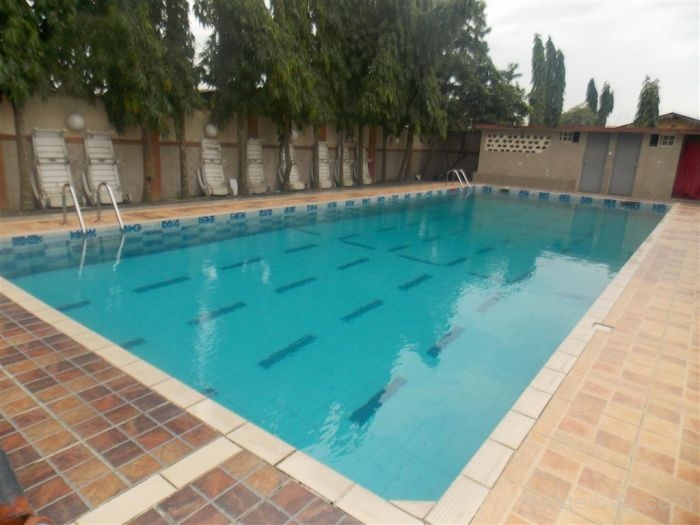How to apply for admission into top Universities in Canada: McGill University

McGill University is a public research university in Canada. According to the QS World University ranking, it is among the top 25 universities in the world and second-best in Canada. The school is made up of students from over 150 countries which makes its student body the most internationally diverse in Canada. This enables students to make valuable connections from all around the world during their studies.

McGill which was founded in 1821 by the royal charter is located in Montreal, Quebec, Canada. It is the oldest University in Montreal and one of the three English-Language Universities in Quebec. Due to its age, the university is considered to be in the list of Canadian Ivys and as such, it is a dream school for several students around the world.
Interested in studying at the University of Toronto? Find the admission requirements here.
Programs offered
McGill University offers both graduate and undergraduate courses. The University has over 1000 programs through a number of faculties, schools and institutes. Some of them are faculty of agricultural and environmental sciences, faculty of arts, faculty of dentistry, faculty of education, faculty of engineering, faculty of law, faculty of management, faculty of medicine, school of Nursing, school of music, school of architecture, school of computer science, school of social work. Etc.
It is an all-encompassing university with qualified lecturers for all courses with the major aim of the institution being to produce award-winning students. Over 140 McGill students have won the Rhodes scholarship which is higher than that of any other university in Canada.
McGill university admission requirements
McGill admits Nigerian students based on the attainment of necessary qualification that leads to admission in Nigeria. The student should however not be a graduate of a vocational or technical school as they are not normally considered for admission.
A Nigerian student is expected to have a Senior Secondary School Certificate (SSSC) with a minimum grade of B. This might be higher if you are applying for a more competitive course. Yearly results from all your secondary school would also be required as this is what the University would use to review your qualifications. Emphasis would be placed on the compulsory subjects for your course of study which you must have taken for at least two years before you completed secondary school.
For instance, if you are applying to study Medicine, and your compulsory subjects are Biology and Chemistry, you must have very high grades in them, if possible higher than in all other subjects. You must also have done them for up to two years i.e since SSS1 to SSS3.
Additional documents
Nigerian students do not require supporting or additional documents such as recommendation letters, personal statements, cover letters, portfolios etc unless they have applied for programs like education, nursing, architecture, religious studies, or social work. It is also required if you applied for scholarships or financial aid.
Need a scholarship to study in Canada? Read this for the list of available Canadian scholarships for Nigerian students.
English Language requirements
The language of teaching and communication at McGill is the English Language therefore potential students are to be vast in the language. Nigerians who have studied in an English Language speaking school for at least four years do not need to provide further proof of English Language proficiency. However, if you do not fall under this category, you would be required to take one of the following tests which must be submitted before the stated deadline.
- McGill Certificate of proficiency in English- Language and culture or English professional communication or Bilingual professional communication.
- Cambridge C2 proficiency test with a certificate awarded with at least a grade of C.
- Cambridge C1 advanced test with a grade of B or better.
- Canadian Academic English Language Assessment (CAEL) with an overall score of at least 70. Both the paper and computer-based tests are accepted.
- Duolingo English Test (DET) having a score of 115 or higher.
- IELTS (International English Language Testing System). McGill accepts the regular academic test and the test for UKVI. You must have a score of at least 6.5.
- Pearson Test of English with an overall score of 65 or more.
- TOEFL (Test of English as a Foreign Language). Applicants for Education and Management courses must have a minimum overall score of 100, music: 79-80 while Agricultural and Environmental Sciences, architecture, arts, nursing, physical and occupational therapy, religious studies, science and social work should score at least 90.
McGill prefers that all results are sent electronically and test results sent in must be the official versions directly from the examining body.
Application deadlines

Applications for admission are usually open until January 15 and if you are applying for a Major Entrance scholarship, you have to submit your documents and application form before January 21. Music application and documents should be submitted on or before January 15, architecture portfolio before March 7 and Religious studies application before May 1.
Applications would not be accepted after the deadline dates so ensure that your transcripts and test results are ready early enough. Your application might also be rejected if the available space for your program gets filled before the deadline.
McGill University Fees
McGill charges students based on their programs of study. The fees for graduate and undergraduate students differ depending on the course of study. Summer and fall session fees are also different. The application fee for all undergraduate programs excluding Medicine and Dentistry is about $115 and they are all non-refundable. Medicine and Dentistry applicants are to pay $160.
Apart from tuition, students would be charged other fees such as society, insurance, late registration fee, service and administrative fees.
Accommodation
McGill University offers accommodation to students who want to stay on-campus. This offers a lot of benefits, especially to first-year students. The accommodation is a walkable distance to school, convenient, has a study space where students can interact with other students. McGill guarantees accommodation for every fresher below the age of 22 years. Once the student has accepted the residence offer, they are committing to a lease under Quebec law for the entire academic year and would be penalized if they chose to end the contract before the year is over.
Those who prefer to stay off-campus can get accommodation from apartments that have partnered with the university. The school also has a voluntary meal plan for off-campus students who want to regularly eat on campus. The student would be required to pay $1,300 per term, can be topped up at any time and would give the student access to a wide range of meals as approved by the federal government.
Health Insurance
The McGill international health insurance plan is compulsory for all Nigerian students. This plan is usually administered by International student services. Even if you are covered by private health insurance, you are not exempt from the McGill health plan.
Extra-curricular activities
As a balanced institution, McGill University does not only focus on academics but on several other activities that allow students to interact, keep fit and display their passion. The University provides an opportunity for interested individuals to volunteer and participate in social work. There are also student societies, faculty, and social associations, departmental groups, clubs, sports and so on.
Working and studying

If you feel the need to combine work with your studies, as a Nigerian student at McGill, you can do so. As long as you are a full-time student, you can work both on-campus and off-campus provided you have the right documents to do so legally. Even if you are not working to be paid, but working to gain experience, you still need the legal documents to work.
To work on-campus, you must have a valid study permit that would allow you to work for an unrestricted number of work hours both during academic terms and on breaks. To be eligible to work during breaks, you must be registered as a full-time student before and after the break.
Students who prefer to work off-campus should also have a study permit, and be full-time students. However, unlike the students who work on-campus, these students are allowed to work for only 20 hours per week during the academic session and full-time during university breaks.
Working in positions such as an auxiliary nurse, teacher in practice, babysitter, volunteer to the elderly or disabled, volunteer as a paramedic, clinical laboratory and other positions that involve working in vulnerable positions require that the student undergoes a medical examination. Without the medical examination, it would be stated on your permit that you are not allowed to work in any of such positions as listed above.
With the numerous services McGill University has to offer, it is little wonder that the school attracts students from all over the world. The best part is that international students are very welcome and can be sure that they would not feel left out.
There are several other universities that Nigerians can apply to in Canada. Check out the full list here!
